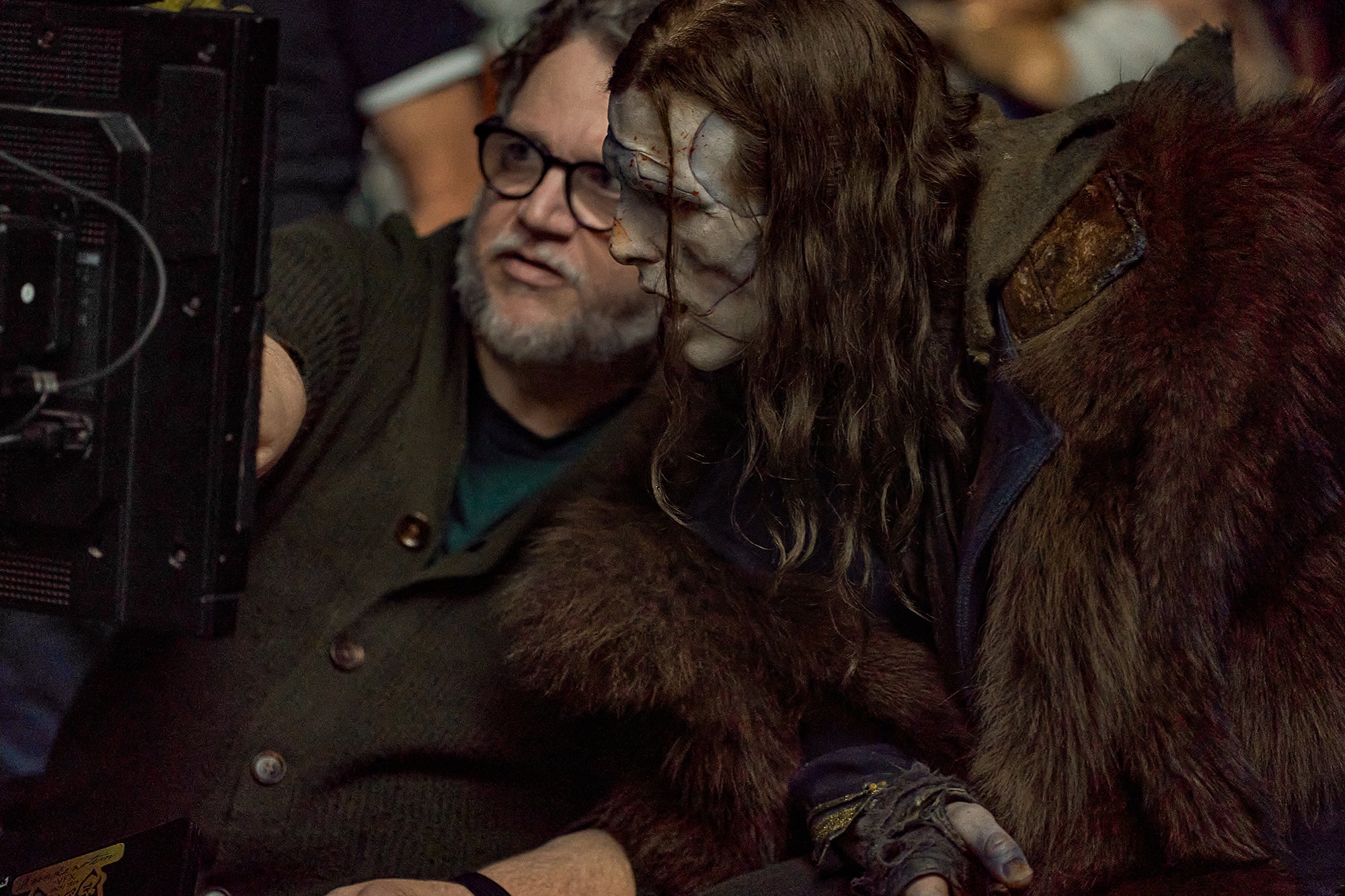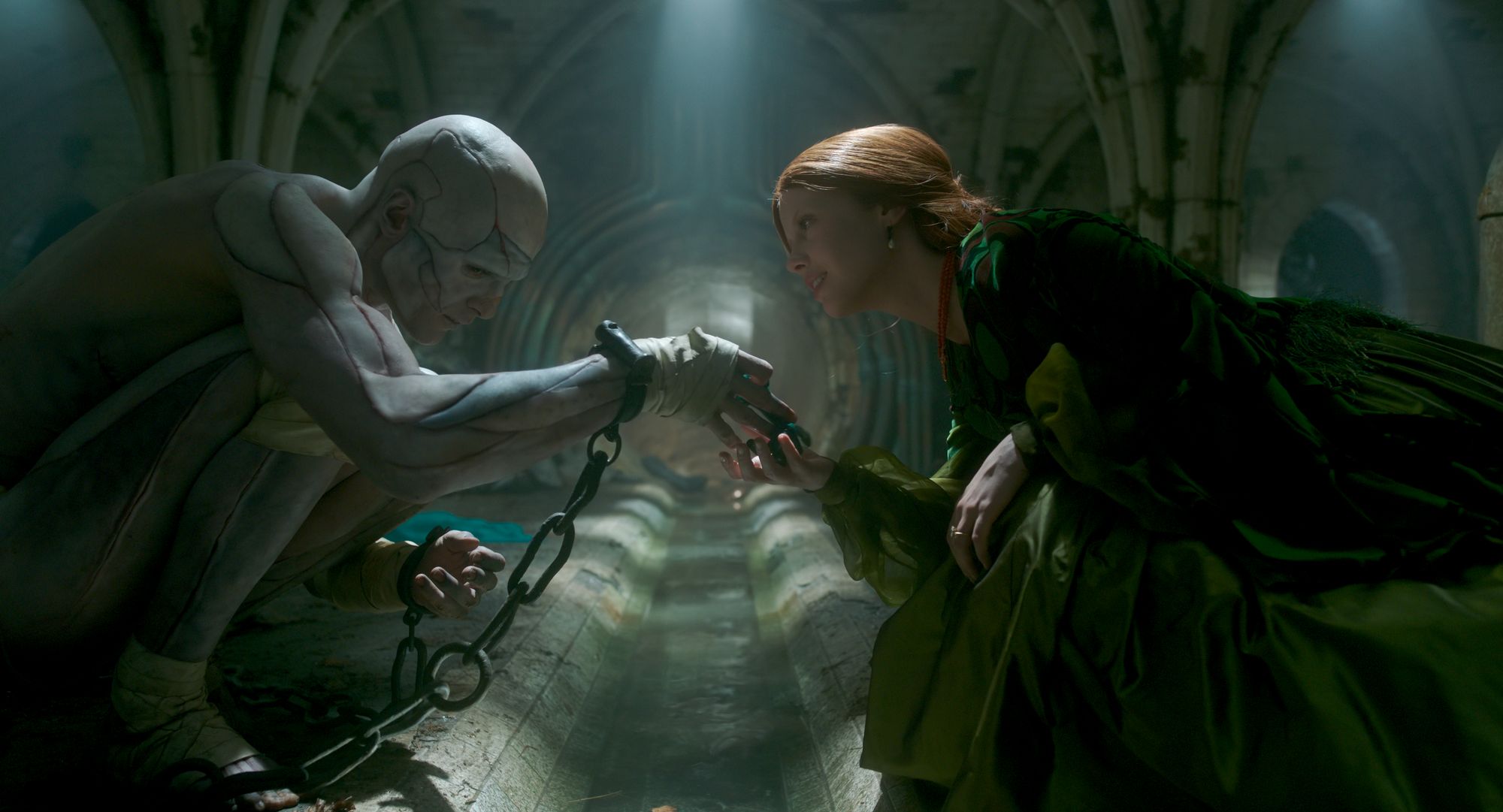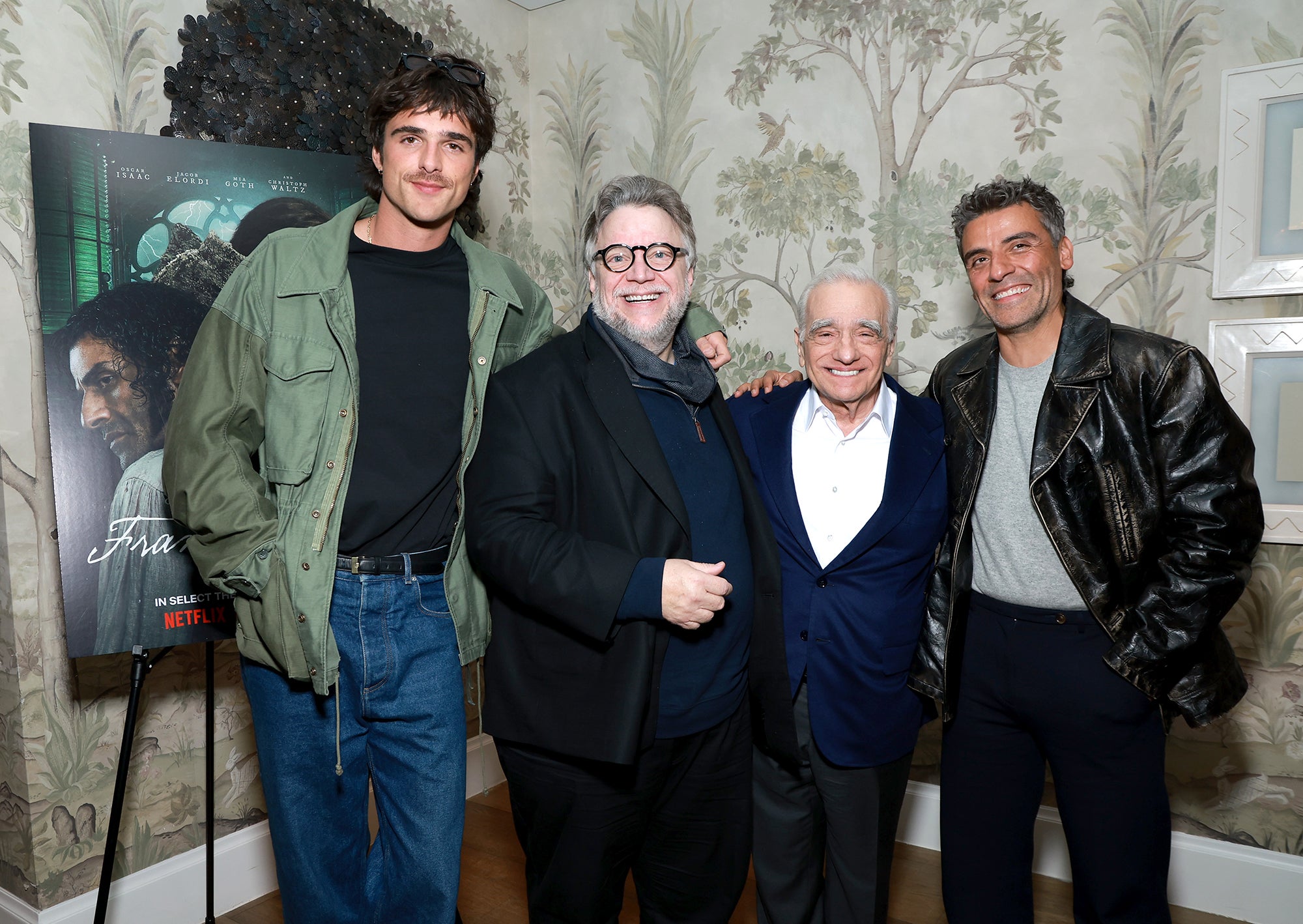Crack open Guillermo del Toro’s ribs, peer in the cavity inside, and there – where a beating and bloody heart should be – you’ll find a copy of Mary Shelley’s Frankenstein. It’s the ur-text for so much of modern horror, yet when the filmmaker behind Pan’s Labyrinth and *The Shape of Water *describes the novel as “his Bible” and Boris Karloff’s film monster as his “Messiah”, it feels insufficient to say that he’s been merely inspired.
No, Del Toro is [too ethereal for that](https://www.the-independent.com/arts-entertainment/films/reviews/nightmare-alley-review-b…
Crack open Guillermo del Toro’s ribs, peer in the cavity inside, and there – where a beating and bloody heart should be – you’ll find a copy of Mary Shelley’s Frankenstein. It’s the ur-text for so much of modern horror, yet when the filmmaker behind Pan’s Labyrinth and *The Shape of Water *describes the novel as “his Bible” and Boris Karloff’s film monster as his “Messiah”, it feels insufficient to say that he’s been merely inspired.
No, Del Toro is too ethereal for that – better to say he lives in communion with the young woman who began to write so feverishly one stormy Genevan night in 1816. He is our Father of Monsters, after all, and they all bear her Creature’s scars: maligned, abandoned, and feared as they are. It’s been his career’s ambition to make Frankenstein, and after nearly two decades’ worth of false starts and broken promises, it’s finally come to fruition with a Netflix budget’s worth of scale.
It’s a beauty to behold, with that rich, Gothic lacquer that’s come to characterise his work. Yet even if this is one of the most faithful adaptations ever made, it’s the deviations from the text that hold the film’s real power – a sense that Del Toro’s Frankenstein is his story as much as it is Shelley’s. Its ache feels especially intimate.
“There are large portions of the movie that are autobiographical for me,” he tells me, sitting surrounded by candles and blood-red flowers the day after the film’s UK premiere at the London Film Festival. “I do that because [Shelley] basically wrote an autobiography of her soul.”
“I know Mary Shelley through Guillermo, so I care for her through him,” says Jacob Elordi, who plays his Creature (Oscar Isaac stars as his creator, Victor Frankenstein). “For me, it’s Guillermo as an influence and how she has influenced him, the way he sees the world and his suffering and his pain. Because I see the Creature as an extension of that, you know?”
It made sense to me how I could be so cruel to him. It made sense to me how I could reject him so outright, because there was no separation between the two of us
Oscar Isaac
Academics could happily spend the rest of their existence debating the true meaning of Frankenstein – as a Romantic challenge to the Enlightenment’s pursuit of reason, or as a complex examination of the role of the mother in 19th-century society. But what really sticks, 200 years down the line, is the anguish carried in its prose, expressed by a Creature shuddered into life by an egomaniac scientist who immediately spurns him as an aberration.
Read the line, “Remember, I am thy creature: I ought to be thy Adam; but I am rather the fallen angel, whom thou drivest from joy for no misdeed,” and picture a 19-year-old Shelley writing them, having recently and unexpectedly been rejected by her father, the political philosopher William Godwin, for eloping with Percy Bysshe Shelley. Godwin himself had once preached against the suffocating conformity of marriage. Such beliefs apparently did not apply to his own progeny.
“The tyrannical father figure was prevalent in her life,” says Del Toro. “Godwin was not a great dad: in the way that he shunned her after eloping with Shelley, in the way that he demanded financing from [Percy] Shelley for his near-bankruptcies, in the way he was aloof when she needed him. Look, [the film is] not written out of wanton abandon, it’s written out of knowledge. I can justify it. It exists in the spaces between the structure of the Romantic novel. So, you know, I felt the license was warranted.”

Guillermo del Toro directs Jacob Elordi on the set of ‘Frankenstein’ (Netflix)
And so, while Shelley’s Victor enjoys a blissful adolescence (“no creature could have more tender parents than mine”), Del Toro’s does not. His father (Charles Dance), a physician by trade, indulges his younger, fair-headed son William but only sees in Victor the potential to extend his legacy in the medical field. When he falters, he beats him.
Del Toro’s Frankenstein, then, expands the cycle of abuse by a generation, and, in doing so, makes it an inescapable fact that Victor and his Creature are mirrors to each other. “For me, at a certain point, it became crucial and necessary to believe that the Creature was Victor,” says Isaac. “That maybe there wasn’t even any kind of objective Creature – that it never came to life, that this is all some horrible projection, that every time something wicked is coming, the Creature arrives.”
The Creature here, before he masters the English language, tries to communicate with his father by repeating his name – “Victor”. Isaac sees beauty in that simplicity. “The amazing musician, T Bone Burnett, he talks about before we had language, we would sing, right? So, before language there was tone. And you can’t lie with tone. And then we invented language to be able to lie.”
“The fact that [the Creature] just uses these few syllables and imbues it with different tones – it’s just honesty. These little movements of the mouth, the way that Jacob does that, creates a whole range of emotions with a couple syllables. It makes me think of that, you know? The truth behind all of that.”
It also, rather tactfully, puts to rest one of the internet’s most circular debates about the story: the question of what we should call the Creature. Frankenstein? Frankenstein’s Monster? As Elordi puts it, “It’s irrelevant, right? That’s the language we’ve created to have a discourse about Frankenstein – do we call him this or the monster? – which is very representative of the world.” What matters isn’t what his name is, but what it means to the Creature himself, which for the actor is, “‘love’ at the beginning and then, once he finds consciousness, it becomes ‘why?’ And that simplicity is so abundantly profound.”

Elordi and Mia Goth in Del Toro’s ‘Frankenstein’ (Netflix)
The mirror, too, extends to the film’s two major female characters, both played by Mia Goth. One is Claire, Victor’s mother, the sole, nurturing presence in the boy’s life. The other is Elizabeth, William’s fiancee. She represents the Romantic ideals, and looks upon the Creature with true empathy. That Victor finds himself attracted to her – well, that’s a real Freudian pileup, which Del Toro toys with by having him, in adulthood, periodically sipping on milk.
“That made us laugh a lot, the milk, because we would always be like, ‘la lechita! La lechita!,’” Isaac jokes (for non-Spanish speakers, “lechita” is an innuendo – you can guess what for). “The fact the only woman he’s ever seen is his mother – you know, whether she really did look like the same person, we don’t know, because he’s the one telling the story. I suspect she didn’t. But, in his mind, it’s her and so the milk was an extension of that.”
“Also, this is someone that’s very put together,” Isaac continues. “He doesn’t drink. He doesn’t do drugs. He’s not, you know, smoking opium. He’s not that kind of person. In fact, he does something very wholesome. He drinks milk. But the reason why is a much sadder, deeper reason – when he gets nervous or when he needs comfort, he looks for mother’s milk.”
And what does the Creature become, then, but a manifestation of his yearning? “We worked with this incredible acting wizard named Gerry Grennell, who I’ve worked with for a long time,” the actor says (Grennell is officially credited as a dialect coach on Frankenstein). “He was the first one that said, it’s as if [Victor] created his broken, inner child and then wanted to reject it. And his inner child had to grow and chase him to the ends of the earth just to forgive him.
“And that, for me, suddenly became this hook into it. It made sense to me how I could be so cruel to him. It made sense to me how I could reject him so outright, because there was no separation between the two of us.”
If there’s a question, then, of who Del Toro sees himself in – creator or creation – we must conclude that it’s both. When I ask him about the decision to include a new character, that of Henrich Harlander (Christoph Waltz), an arms manufacturer who becomes Victor’s patron, he describes Victor, in turn, as being “like a film director, in a way”.
“I wanted Harlander to be the studio that promises everything you need,” he says. “Except, you’re going to do it this way. Except, you owe me this. Victor doesn’t care where the money comes from. He doesn’t try to find out, because he’s flattered and he’s pampered and we made it a point for him to start dressing more flamboyant, be more abandoned to his desires and so forth.”
“I think the character brings an air of modernity to the film. We all live in a world that, if you blink, you’re working for somebody with a very shady background.” It’s hard, in that moment, not to think of Del Toro’s own experiences in Hollywood (he famously disowned the theatrical cut of his 1997 sci-fi horror Mimic, after creative clashes with producers Bob and Harvey Weinstein).

Monster lineup (from left): Elordi, Del Toro, Martin Scorsese and Isaac at a ‘Frankenstein’ event in New York City in October (Getty)
The director’s deep identification with the novel, too, may explain why he chooses to end the film as he does, with forgiveness. “[Victor] ends up running from all of his guilt and his shame and his ugly – which is all of us,” Elordi says. “And then [he] realises at the end, all that guilt and that shame, it’s not ugly. So, in the end, Victor accepts himself. And then he is liberated to go see the sun. I’m just so profoundly moved by the story that Guillermo constructed.”
“I think that forgiveness is an incredible tool,” says Del Toro. “Very difficult, but very worth it. I think the spirit of Romantic existentialism warranted the ending of the book, where the Creature is born by the current and the distance into nothing.
“I thought this is a way to renovate, to renew the pact between the novel and the modern world, where we are in urgent shortage of forgiveness and acceptance. And I thought it organic, because the ending is not a happy ending, but it’s not an unhappy ending. It’s existential in a different way. It says, basically, here we are and there we go, which is all we get. All we get is this. There’s no menu. It’s one flavour – life.”
‘Frankenstein’ is in selected cinemas and streams on Netflix from 7 November
